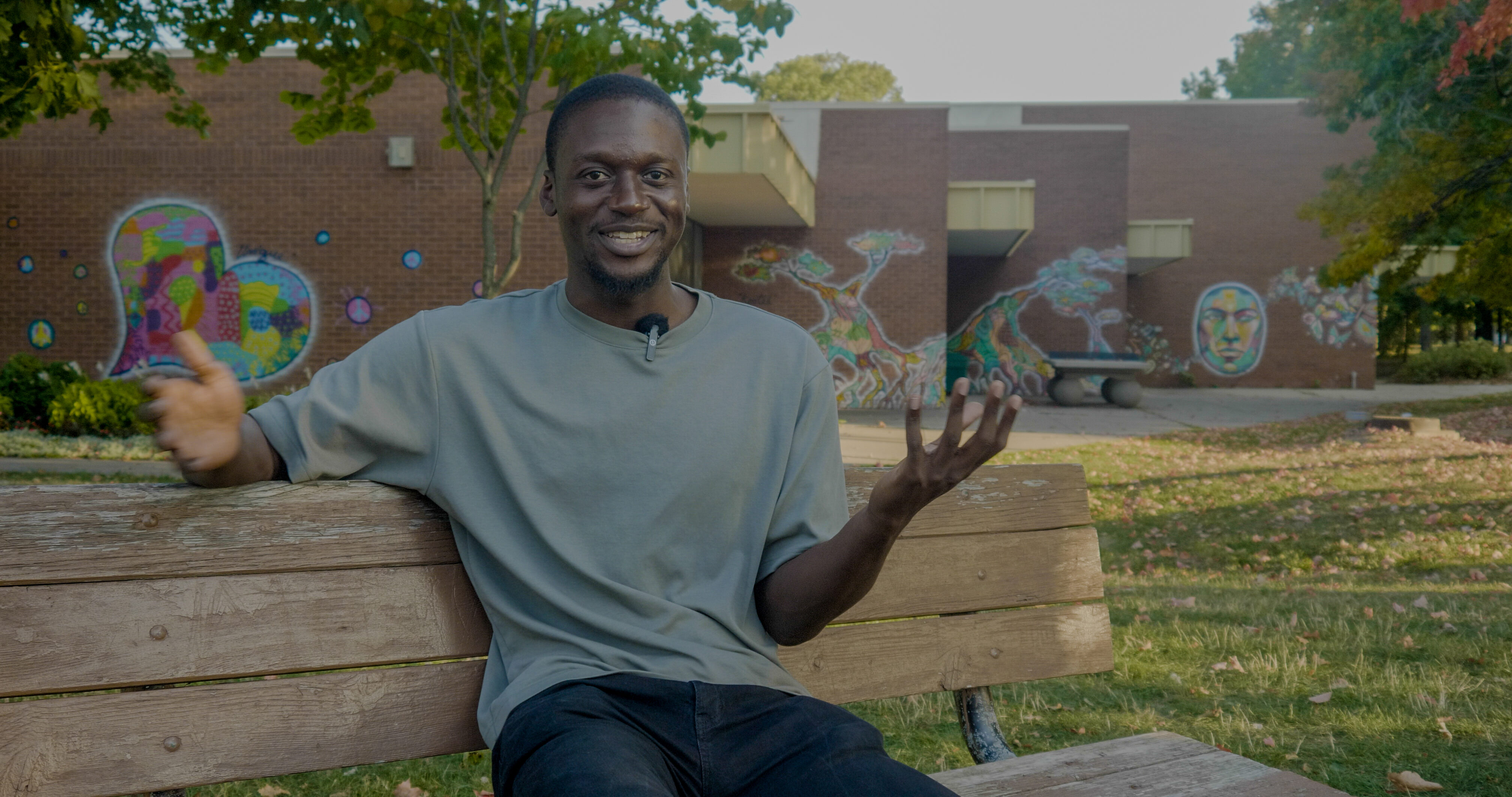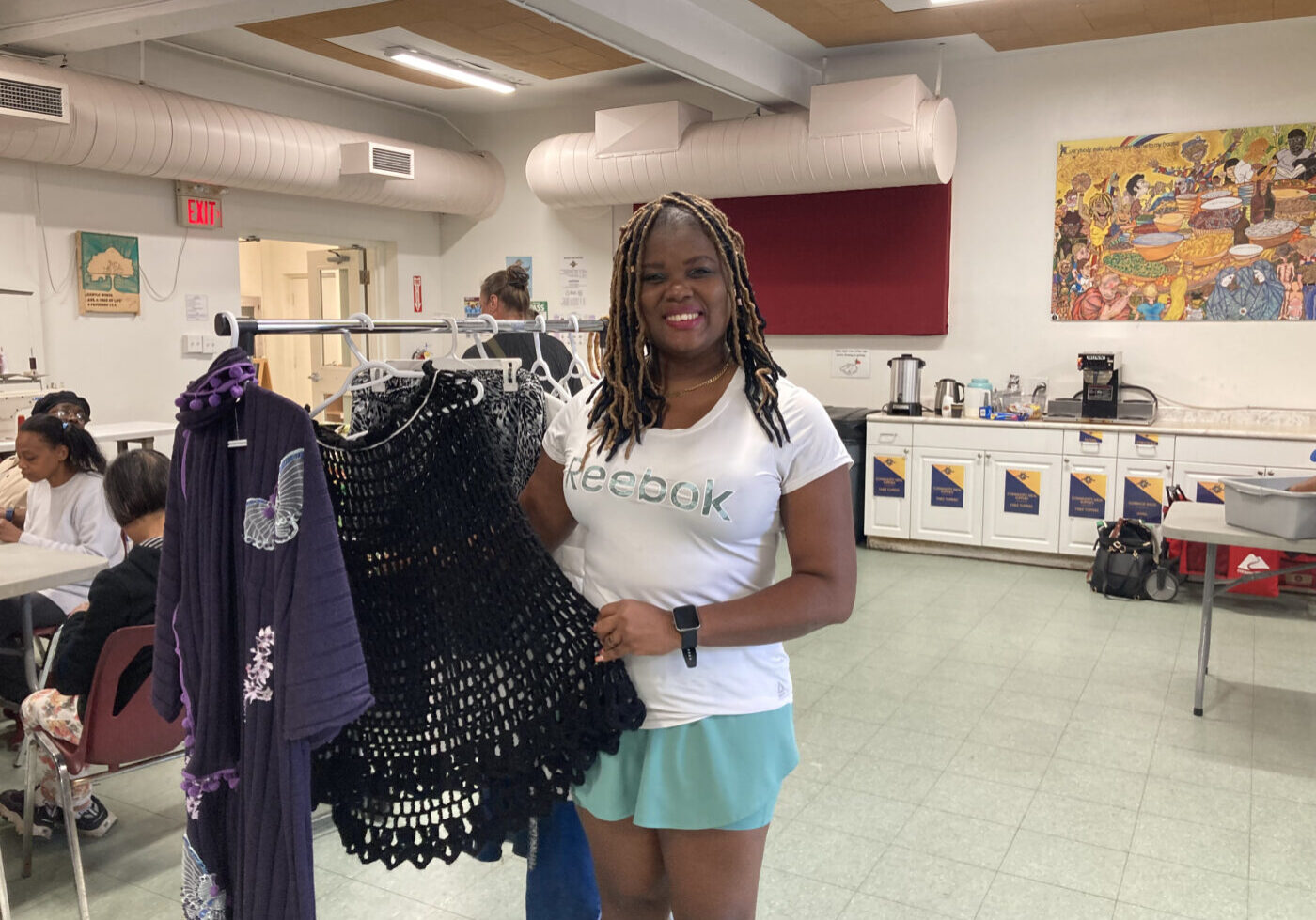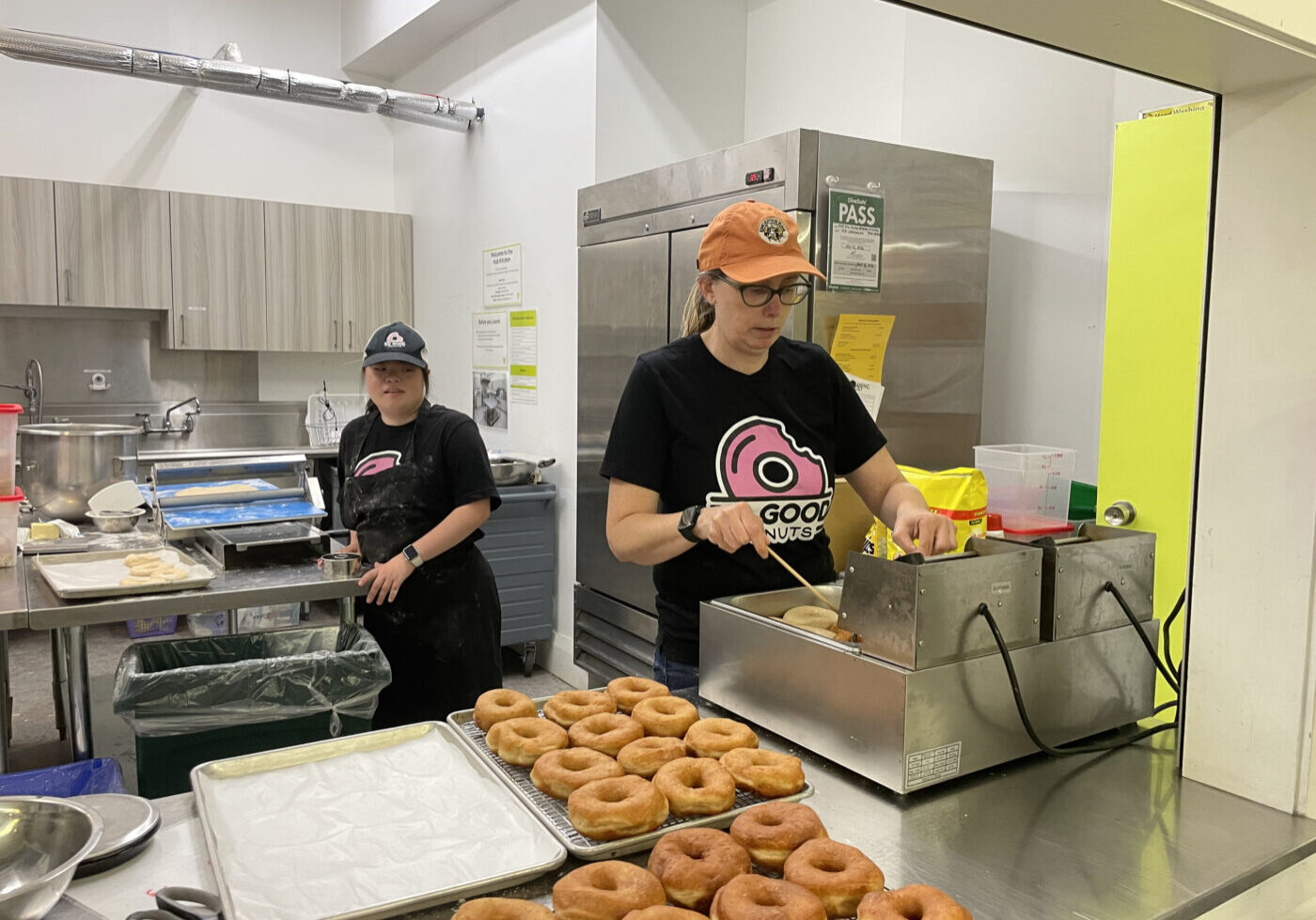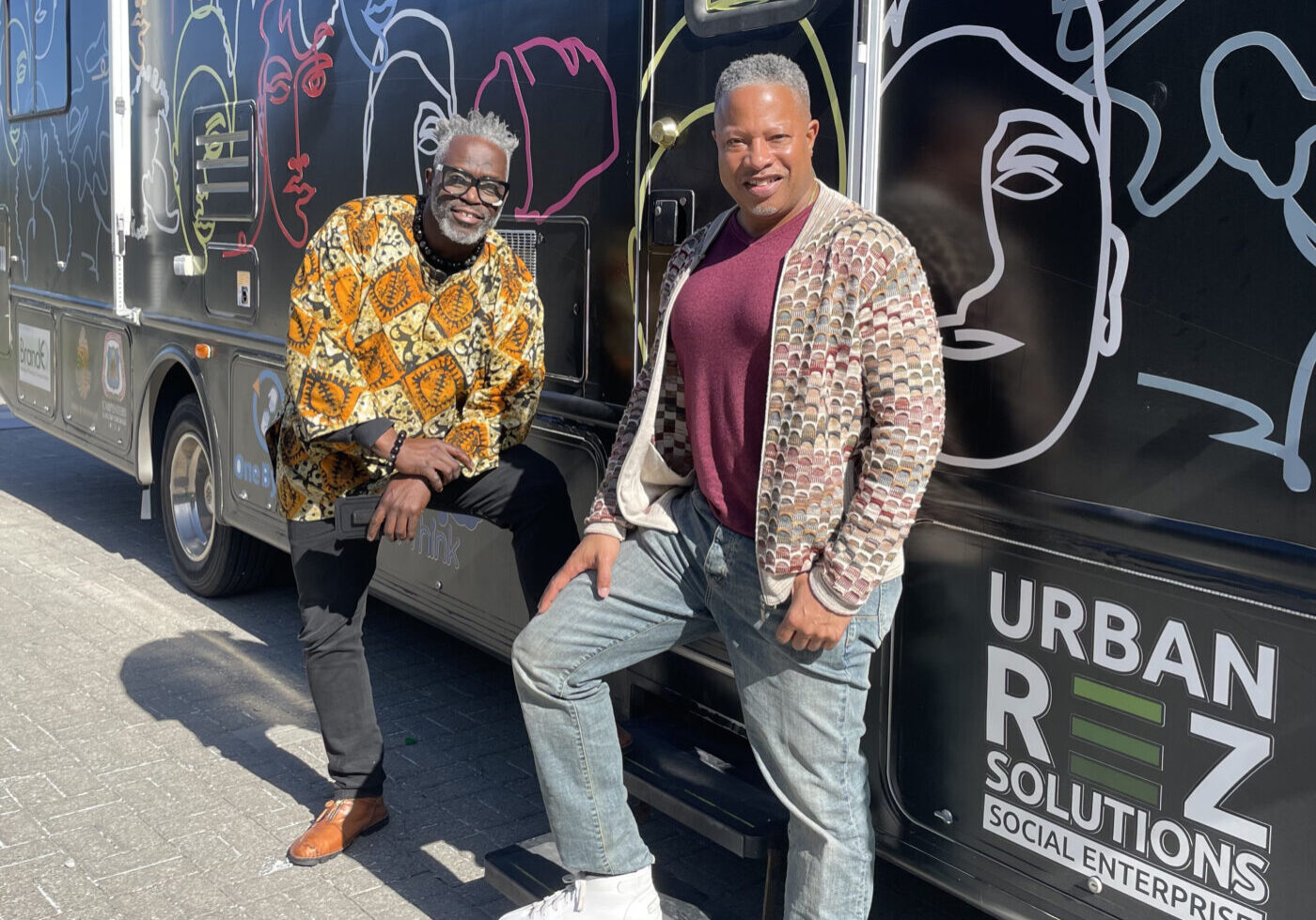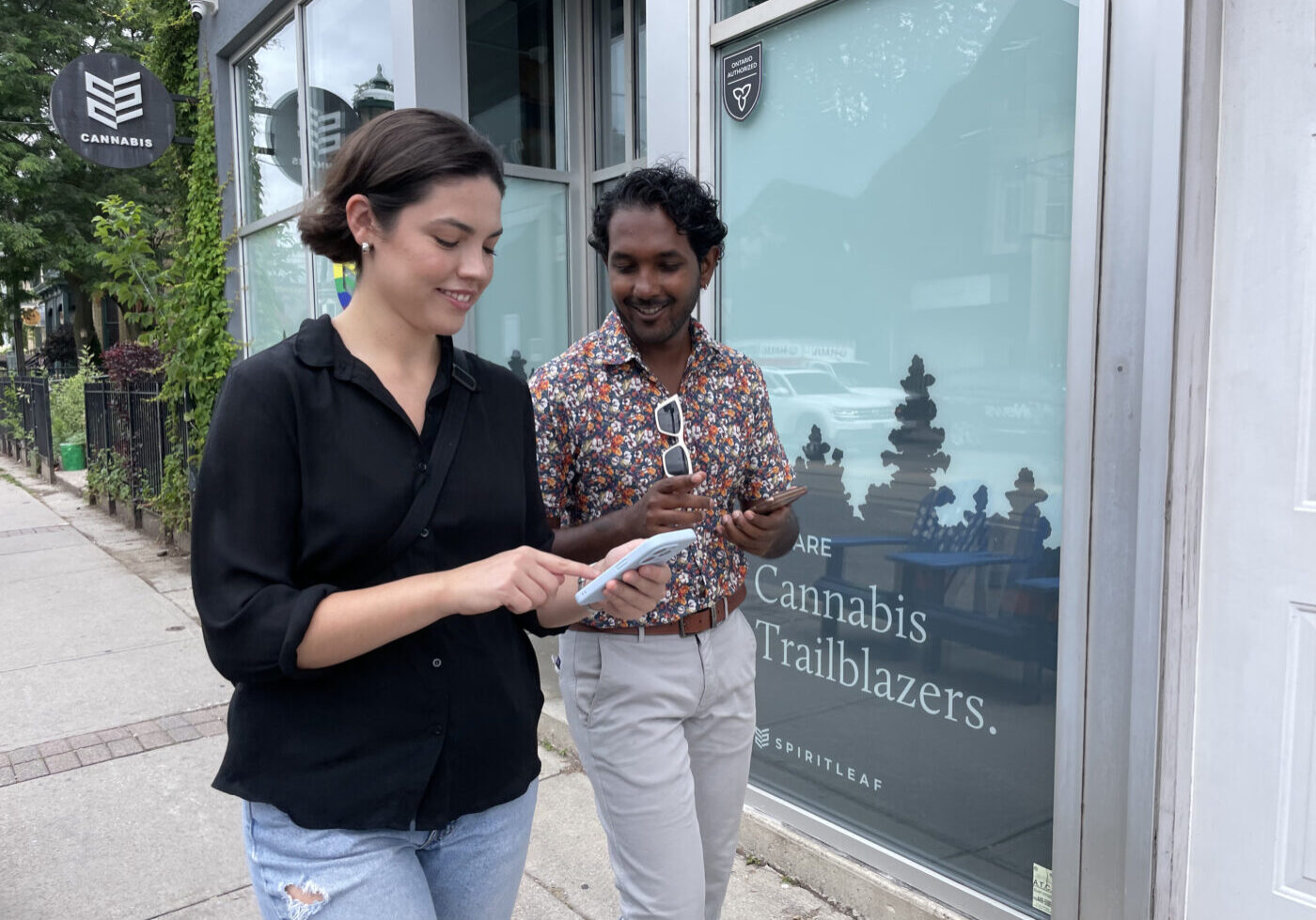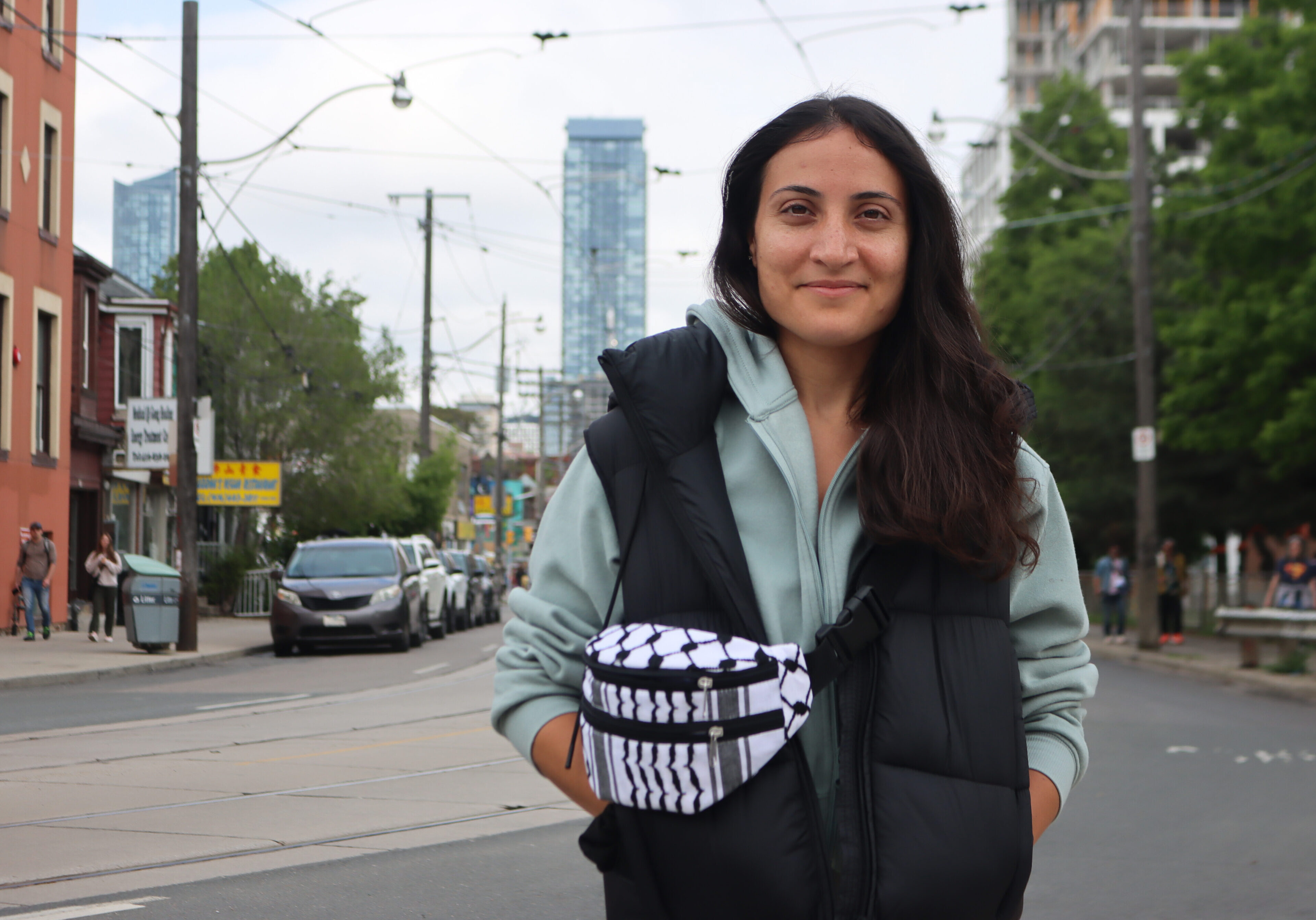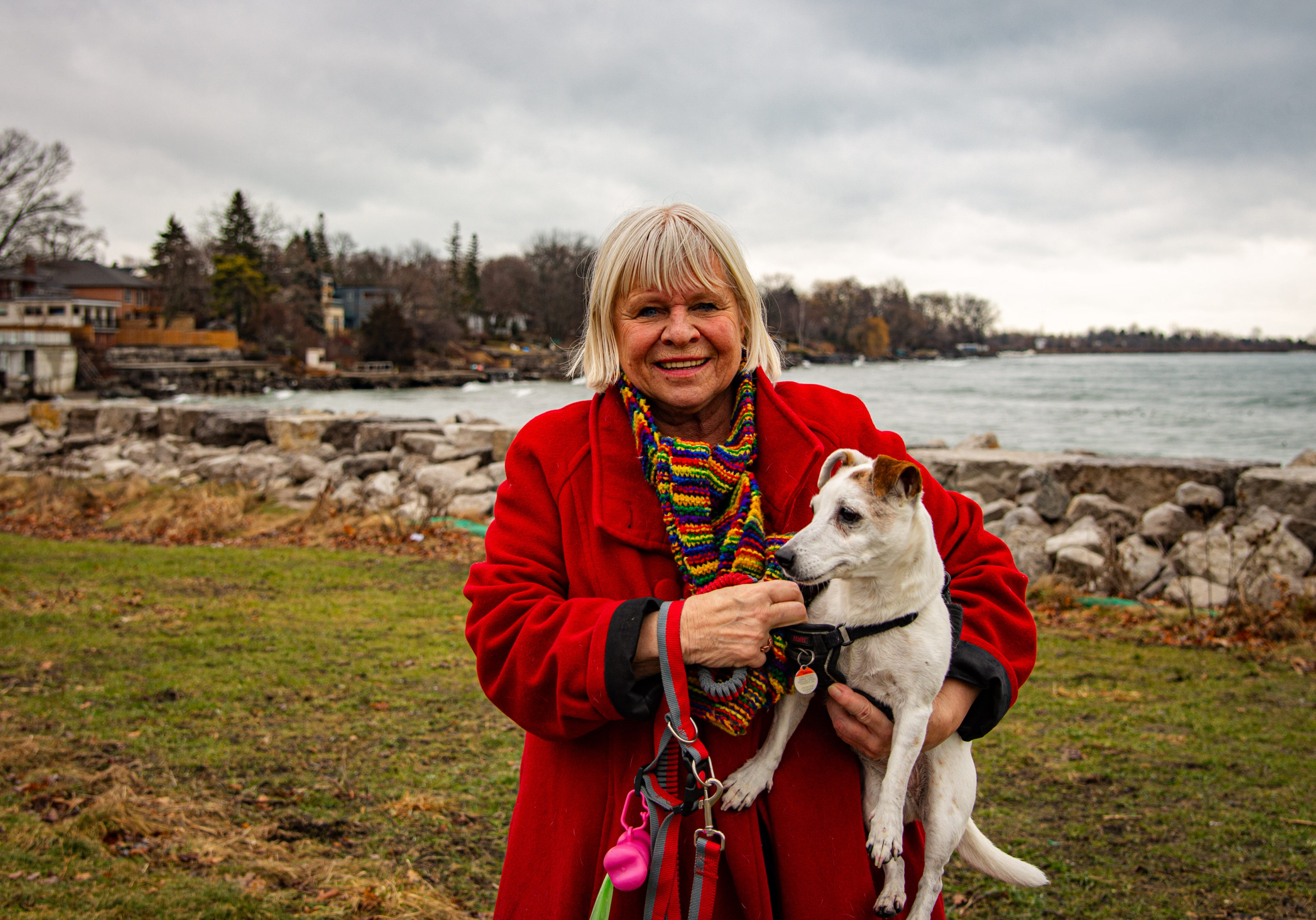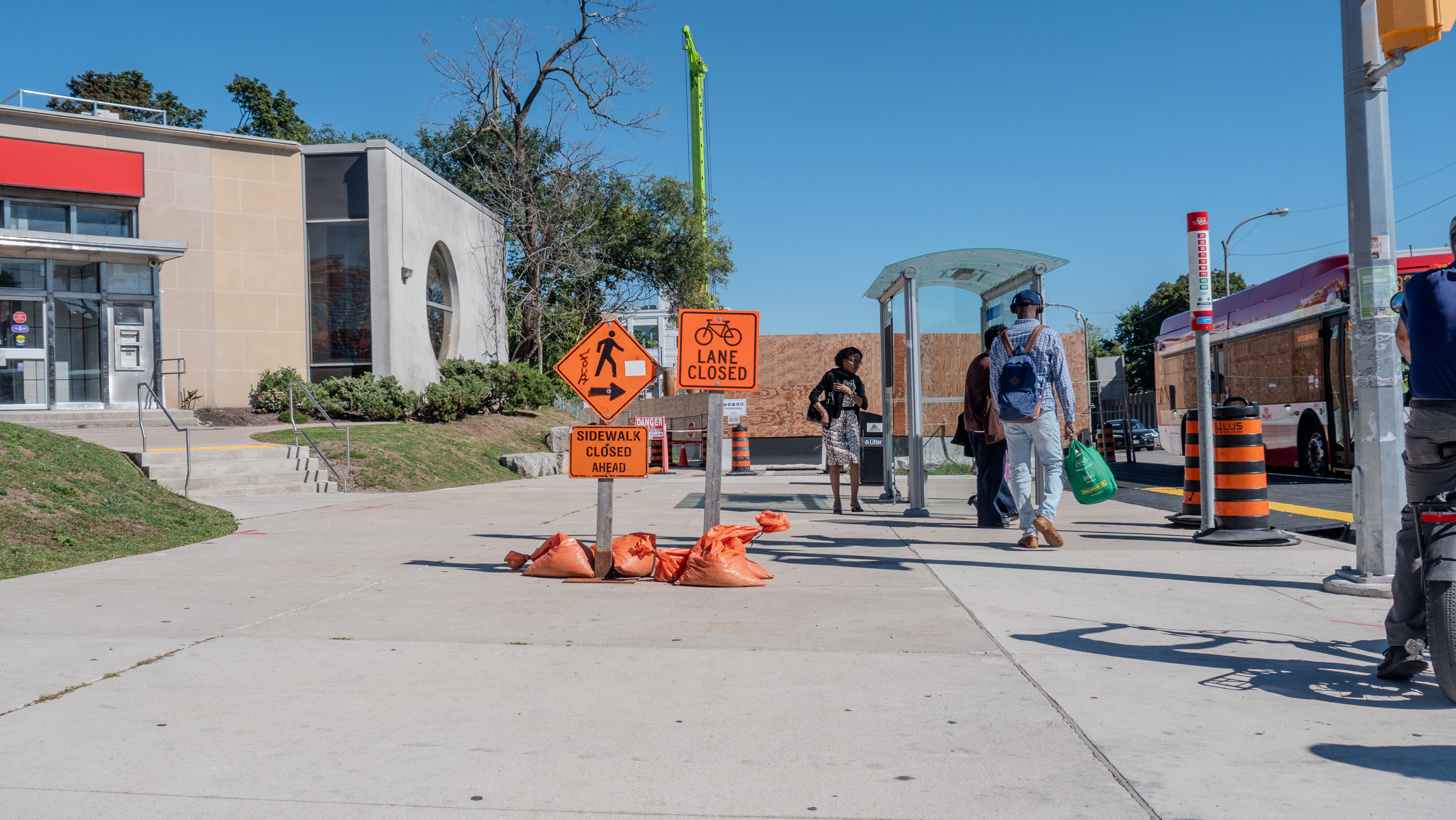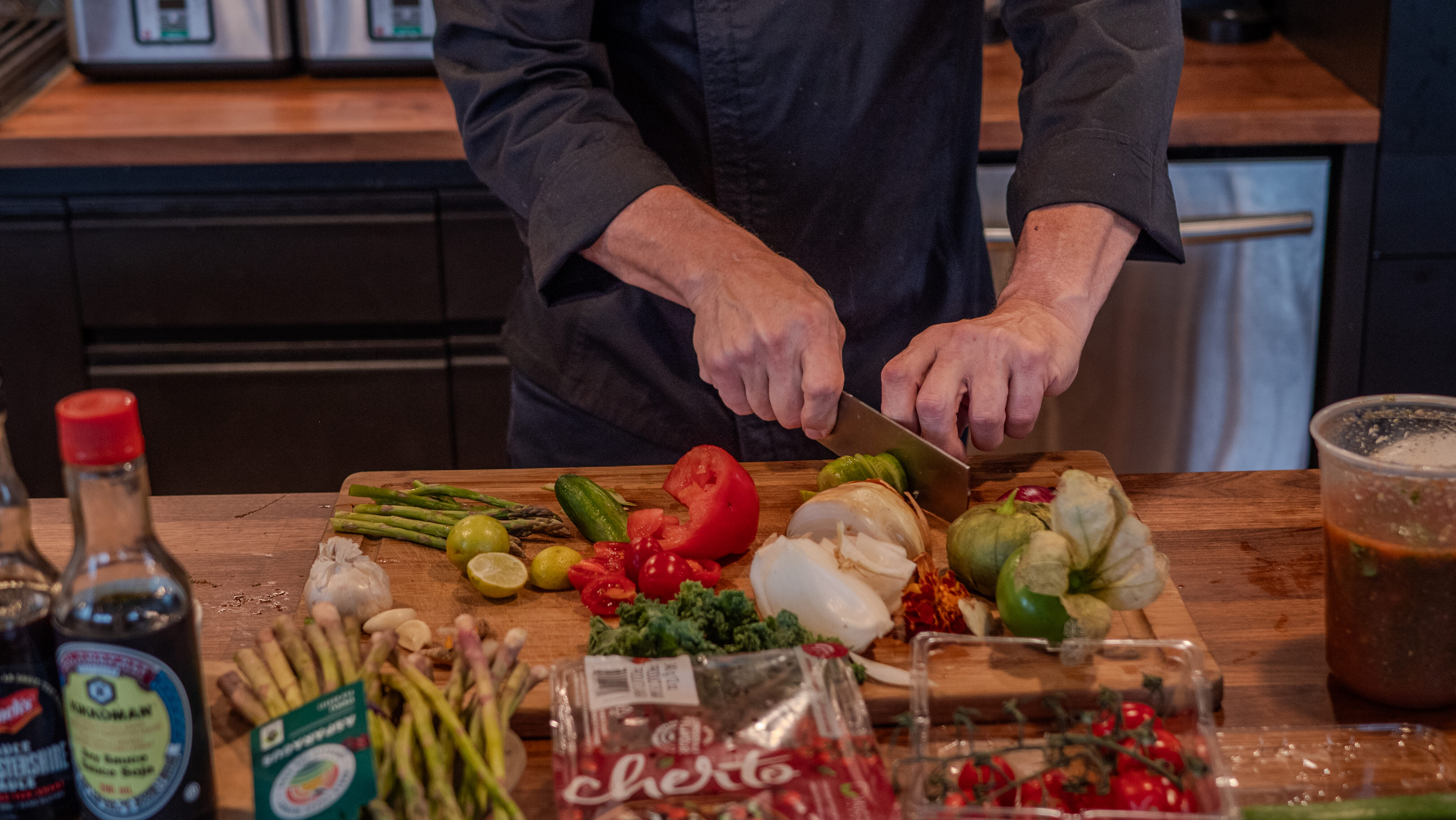PART 1
Why it’s tough to start your own business as an underrepresented entrepreneur in Toronto
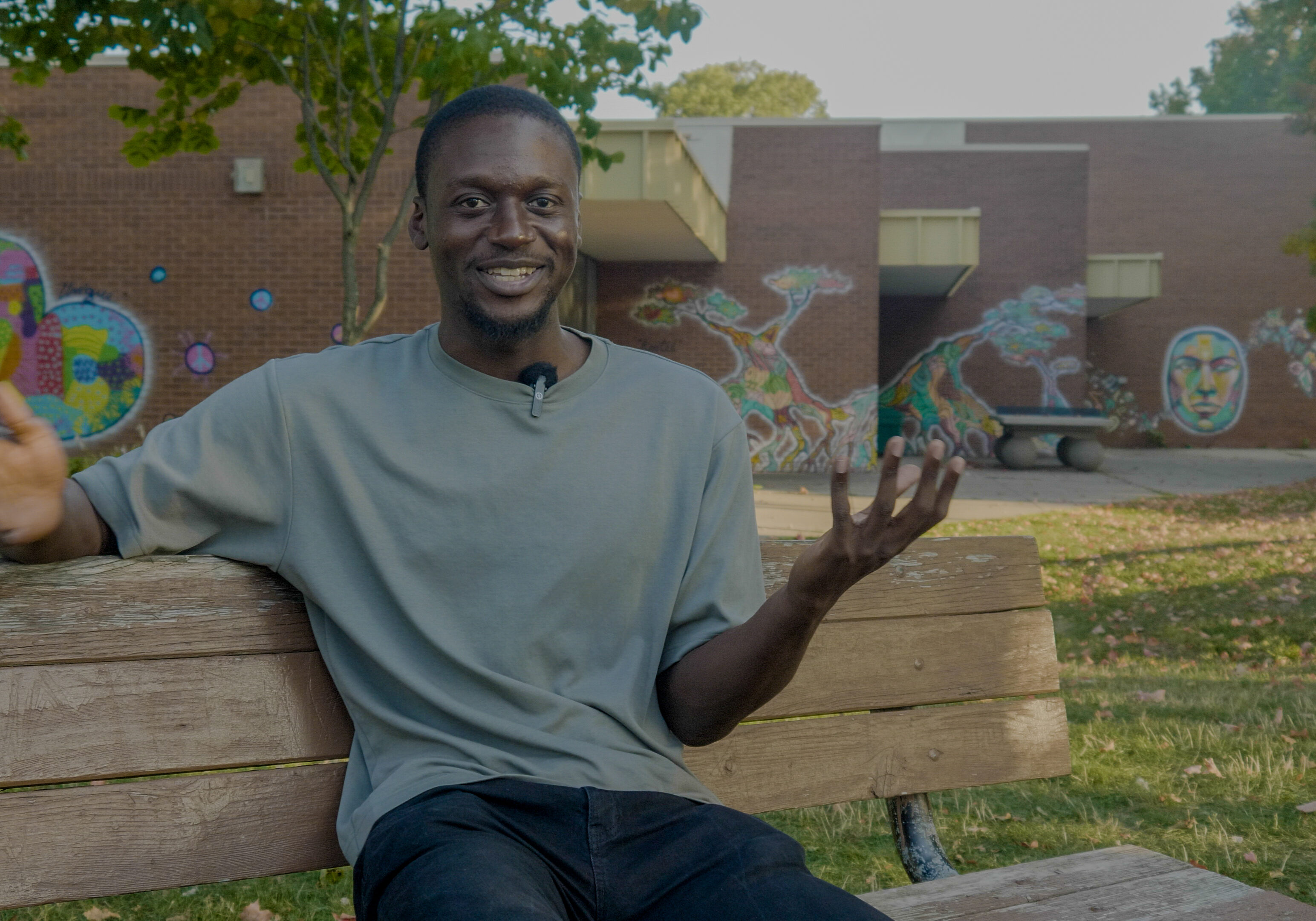
Entrepreneur and policy expert Kwasi Adu-Poku sits in front of the Driftwood Community Recreation Centre at 4401 Jane St. North York.


MARY NEWMAN
British-Canadian journalist with a decade’s experience producing for the BBC and CBC. Hails from Robin Hood country so naturally hates wealth inequality and loves organized labour. Now resides in the dog paradise of Roncesvalles.
Nov. 4, 2025
With files from James Westman and Aia Jaber.
This explainer is part of our November Action Journey on inclusive entrepreneurship and innovation in Toronto, which was developed in partnership with Untitled Planning. The Green Line maintains full editorial independence to ensure journalistic integrity.
What’s it like to be an entrepreneur if you don’t come from money or privilege?
For many Torontonians who are from racialized, low-income, newcomer or other marginalized communities, the barriers are systemic. Challenges aren’t personal, they come from unequal opportunities, generational wealth gaps, discrimination and a shortage of programs that genuinely meet local needs.
“It may be harder for an aspiring Black entrepreneur to get the capital they need…even if they have the best idea in the world,” says Kwasi Adu-Poku, founder of The Reach Series, a speaking and apparel social enterprise.
A 2021 survey commissioned by the African Canadian Senate Group found that systemic racism and the lack of access to capital and networks are the main barriers preventing growth and sustainability for Black-owned businesses. Out of the more than 300 Black entrepreneurs surveyed across Canada, 76 per cent said their race makes it harder to succeed.
Bilqees Grant, co-founder of Helius Originals, a company specializing in food and drink smoker kits and accessories, agrees. She says one of the biggest barriers facing Black entrepreneurs is funding.
“It's getting that startup [money] because it costs a lot more than people think it does to start," she explains. “The disbursement of wealth isn’t centralized in the Black community. So, a lot of us are trying to build that generational wealth for our families.”
Adu-Poku and Grant both grew up in the Jane and Finch neighbourhood, one of the City’s Neighbourhood Improvement Areas (NIAs), which are those identified to receive support and funding for community development based on socioeconomic need. Jane and Finch also has a vibrant, long established Black community, with approximately 27 per cent of the residents being Black, compared to the Toronto average of 9.6 per cent.
Day-to-day financial stressors stand in the way of entrepreneurship for many people in the area, according to Olu Villasa, program manager at the Black Entrepreneurship Alliance (BEA).
In his conversations with Black residents in northwest Toronto, Villasa says he hears a lot of the same barriers come up time and time again. Chief among them are rent and transportation costs.
So far, the BEA has been offering business programming and consultations for entrepreneurs. Now, it’s planning and fundraising to build a mixed-use innovation hub called the Element Centre. Plans for this hub include affordable residential units because housing emerged as a crucial need for local entrepreneurs, according to a report for the BEA by Untitled Planning, an organization focused on community economic development, housing and innovation.
According to City of Toronto data highlighted by Untitled Planning, 56 per cent of Jane and Finch residents rent their homes, with 32 per cent relying on subsidized housing — both of which far exceed city averages.
Untitled Planning’s report highlights that the construction of transit infrastructure, such as the Finch West LRT, as well as big development projects like the Jane-Finch Mall, could displace local renters because it causes a surge in housing prices and demand.
Based on City of Toronto data, Untitled Planning’s report shows that the median income for renters in Jane and Finch is $40,141, below the city-wide figure of $45,385. It also highlights that “over 40 per cent of Black renters earn less than $20,000 annually, limiting their housing options and increasing vulnerability to displacement,” which also restricts their options for pursuing entrepreneurship.
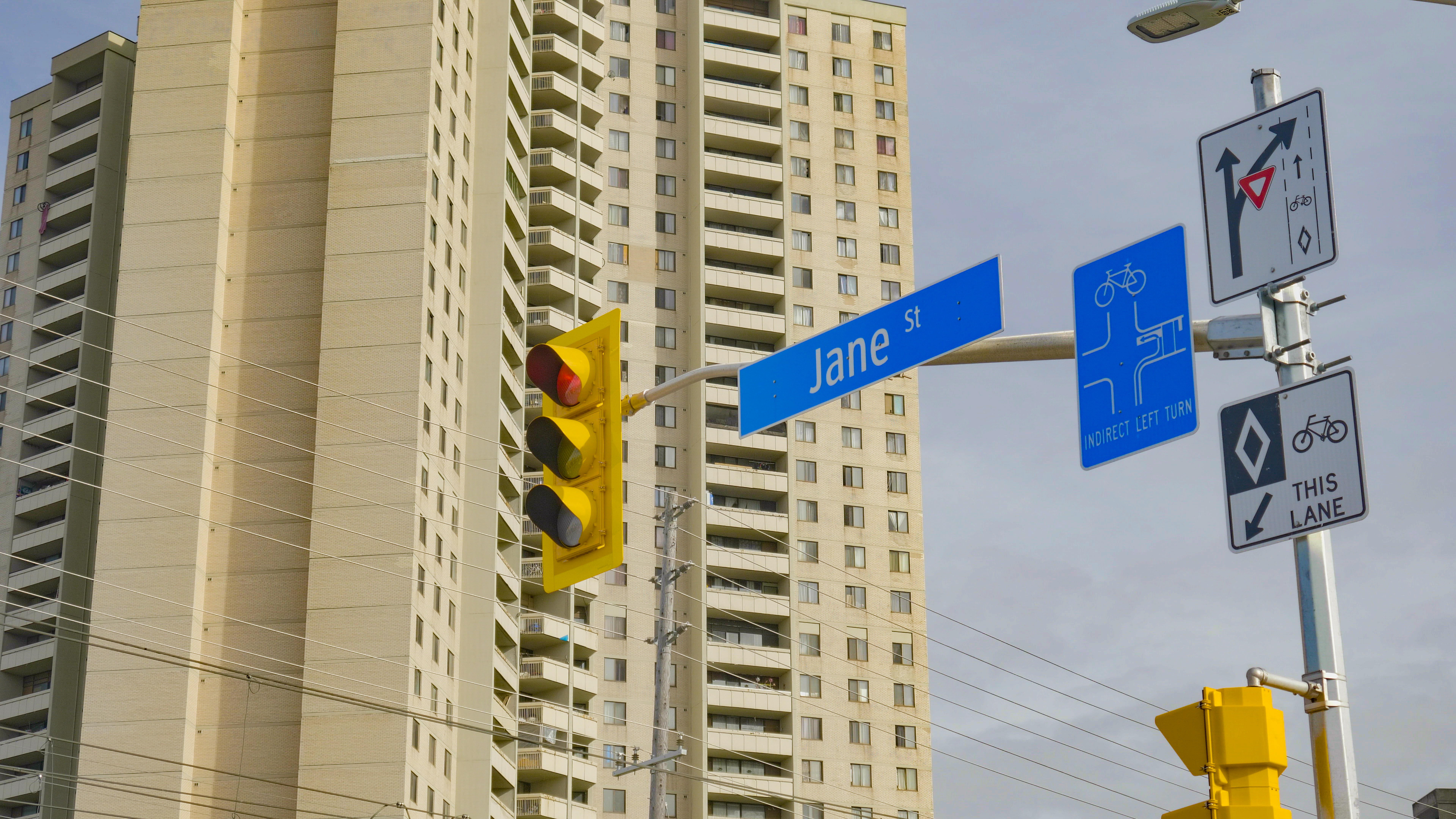
A residential building in the Jane and Finch area.

“Housing is a big barrier to why people don’t get into entrepreneurship or even stay in entrepreneurship,” says Alexandra Lambropoulos, co-founder of Untitled Planning. “Entrepreneurs don't exist in a vacuum. They're people first — they're community members first.”
These issues aren’t just unique to Jane and Finch. Black Canadians make up 4.3 per cent of the population nationally, yet only 2.1 per cent of Canadian businesses are Black-owned.
“I might walk into a bank as a Black businessman and try to get a business loan, and you have to go through the roof, climb a tree — you have to go all over the place – in order to be qualified,” says Courtney Grant (no relation to Bilqees Grant) who opened his first restaurant, Caribbean Queen Jerk, in 2008.
Despite the number of Black businesses increasing in Canada, federal government data suggests they’re not meeting their full potential, tending to be smaller and have a lower rate of return on assets than other businesses.
One reason is the lack of resources in Black neighbourhoods, according to Villasa. While there’s a noticeable concentration of innovation infrastructure in Toronto’s downtown core, the northwest currently only has one hub: Jane and Finch’s BEA. Villasa says that historically, there’s been a lack of investment in social infrastructure in northwest Toronto.
“When I was growing up, we had one community centre and there was a whole bunch of youth, so it was really overused,” he explains. “There's a lack of meeting spaces owned by the community. There [weren’t] a lot of third spaces…to meet together to converse.”
A lack of access to innovation infrastructure and funding affects marginalized groups beyond the Black community in Jane and Finch. Other NIAs across Toronto also have a low proportion of innovation infrastructure and a higher proportion of racialized residents, including Flemingdon Park and Thorncliffe Park in the east, and Golfdale-Cedarbrae-Woburn and West Hill in Scarborough.
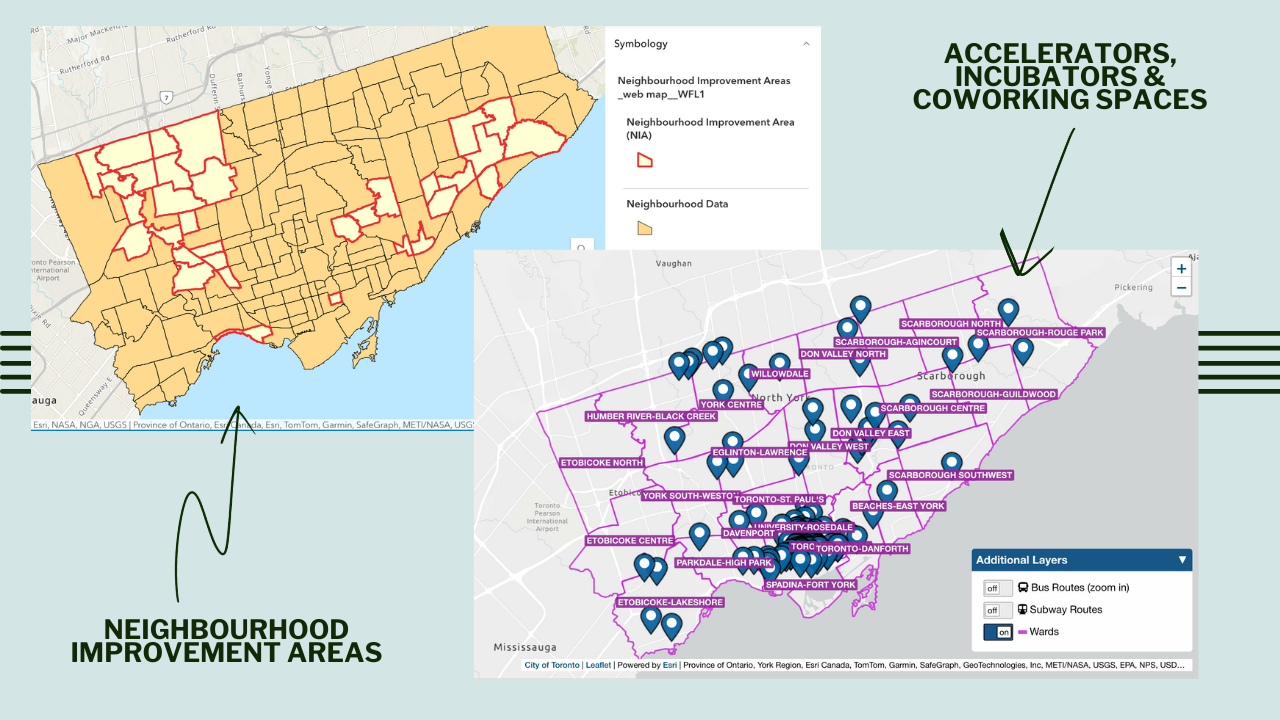
Neighbourhood Improvement Areas across Toronto get less accelerators, incubators and coworking spaces.
🗺️: Toronto Neighbourhood Improvement Area map (left); City of Toronto "Accelerators, Incubators & Coworking Spaces" map (right).
Even beyond geography, different marginalized identity-based groups often face similar systemic barriers.
According to a 2021 study from Toronto Metropolitan University, recent immigrants, particularly women, said funding was the most significant barrier preventing them from starting or scaling up their businesses in the Greater Toronto Area. It’s often due to a lack of credit history or their immigration status, which prevents them applying for federal funding. The study also identified language as an impediment, especially understanding official jargon, and proposed solutions such as funding for incubators and better language services.
Similarly, according to 2023 research by the Social Research and Demonstration Corporation, only 0.5 per cent of all small and medium-sized enterprises in Canada are majority-owned by people with a disability. Its findings suggest this group faces unequal access to formal educational and on-the-job learning opportunities that can affect their entrepreneurial pursuits. Researchers identified a lack of targeted business-related training programs and support as another barrier.
Why does this matter? Some experts say that diversity in the entrepreneurship world opens up many possibilities for marginalized groups. They argue it can foster community development by creating jobs, reinvesting profits and inspiring future entrepreneurs.
For our November Action Journey, we spotlight Black-led innovation initiatives in Jane and Finch, unpack how diverse entrepreneurship can benefit Toronto neighbourhoods, explore different models of community development and share tips for aspiring business owners.
PART 2
How community networks build strong businesses — and even stronger neighbourhoods

MARY NEWMAN
British-Canadian journalist with a decade’s experience producing for the BBC and CBC. Hails from Robin Hood country so naturally hates wealth inequality and loves organized labour. Now resides in the dog paradise of Roncesvalles.

ANTHONY LIPPA-HARDY
Mississauga native currently studying journalism at Toronto Metropolitan University. Loves to explore different visual mediums to tell impactful stories that need to be seen.
Nov. 11, 2025
With files from James Westman.
This feature is part of our November Action Journey on inclusive entrepreneurship and innovation in Toronto, which was developed in partnership with Untitled Planning. The Green Line maintains full editorial independence to ensure journalistic integrity.
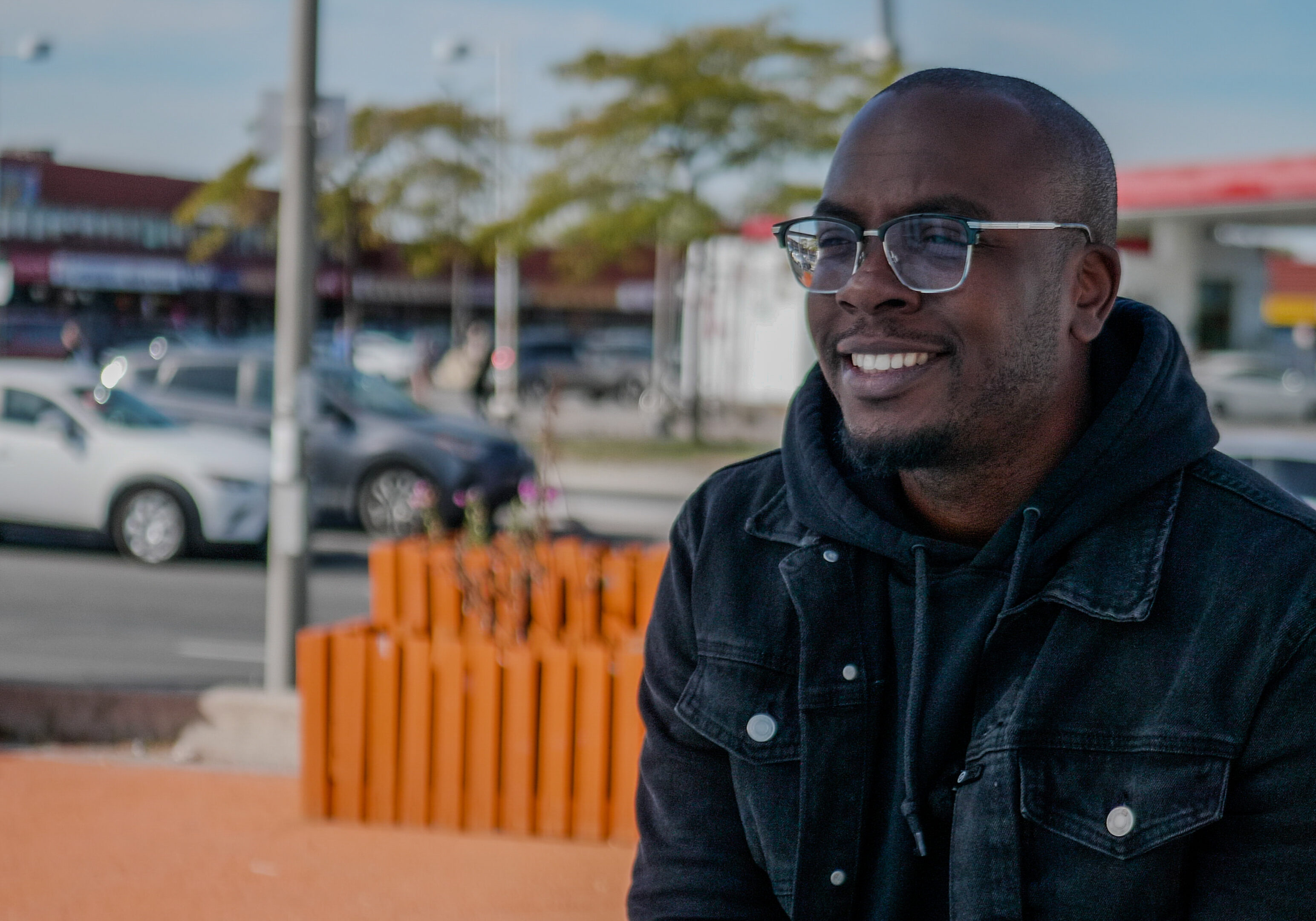
Olu Villasa, program manager at the Black Entrepreneurship Alliance, sits on a sidewalk in the Jane and Finch area.

What are some effective ways to advance community economic and social development in racialized and low-income Toronto neighbourhoods?
Alexandra Lambropoulos, urban planner and co-founder of Untitled Planning, says entrepreneurship can foster social innovation and create solutions that come from within communities. “Diverse entrepreneurs tend to hire other diverse talent and build businesses that respond to challenges that others might miss,” she explains.
Lambropoulos adds that the resulting technologies or innovations can then be used to solve concrete problems that the community faces, such as food insecurity, transportation and climate change. She emphasizes that entrepreneurship creates conditions for other types of “community wealthbuilding to occur, strengthening not just the local economy, but also the broader system as well.”
To learn more about different neighbourhood models and how they can build strong hyperlocal economies, check out our feature and watch our video, where we dive into insights from experts and entrepreneurs in Jane and Finch.
A step-by-step guide to setting up your local business in Toronto
We asked experts and business owners for their best tips, and compiled links to grants and resources to help you take the first step on your entrepreneurship journey.

Bilqees Grant, co-founder of Helius Originals, shows her food and drink smoking kit.

Do you have a compelling business idea but don’t know where to start?
We asked entrepreneurs and experts for their best tips and compiled grants and resources to get you started.
Dive into our guide to explore!
Are you curious about different community organizations helping boost entrepreneurship and employment skills in the city? Check out these stories by our team.
Here's your chance to support the only independent, hyperlocal news outlet dedicated to serving gen Zs, millennials and other underserved communities in Toronto. Donate now to support The Green Line.
PART 3
Building community-powered businesses: A hyperlocal model from Jane and Finch’s BEA
A film screening by The Green Line at the Black Entrepeneurship Alliance's fourth anniversary.
About the Event
🎉 Celebrate & learn from Black business leaders in Toronto!
This month, part 3 of our November Action Journey — Building community-powered businesses for Toronto neighbourhoods — is extra special 💡
The Green Line's joining the Black Entrepreneurship Alliance’s Anniversary on Nov. 20 at the Schulich School of Business.
The event will bring together Black entrepreneurs, intrapreneurs, business leaders, industry champions, civic leaders and thought partners for a night dedicated to leadership, connection and growth.
We’ll be sharing our short documentary, “How entrepreneurship can build a strong hyperlocal economy: Models from Jane and Finch" — and we'll be chatting with the community about challenges and resources for local innovators.
We'll also be celebrate two BEA cohorts:
- The fifth cohort of the Business & Leadership Essentials Certificate Program, supported by TD in collaboration with Schulich ExecEd.
- The inaugural cohort of the Business Process Improvement Program, delivered in partnership with York University School of Continuing Studies.
Join us as we honour these graduates and look ahead to BEA's next chapter.
Dress code is business casual.
Light refreshments will be served.
Events are an essential part of our Action Journey. We want to empower Torontonians to take action on the issues they learn about in The Green Line — so what better way to do that than by bringing people together? From community members to industry leaders, anyone in Toronto who’s invested in discussing and solving the problems explored in our features is invited to attend. All ages are welcome unless otherwise indicated. Our only guidelines? Be present. Listen. Be kind and courteous. Respect everyone’s privacy. Hate speech and bullying are absolutely not tolerated. At the end of the day, if you had fun and feel inspired after our events, then The Green Line team will have accomplished what we set out to do. Any questions? Contact Us.
PART 4
How to build up local innovation in Toronto
Event Overview
See what you missed
from our latest event.
Our community members brainstormed solutions for supporting local entrepreneurs.
Compiled by The Green Line.

Graduates of BEA's business cohorts chat in front of The Green Line's engagement wall.
📸: Yara El Murr/ The Green Line.

An event attendee writes down resources and strategies that helped him in his entrepreneurship journey.
📸: Yara El Murr/ The Green Line.
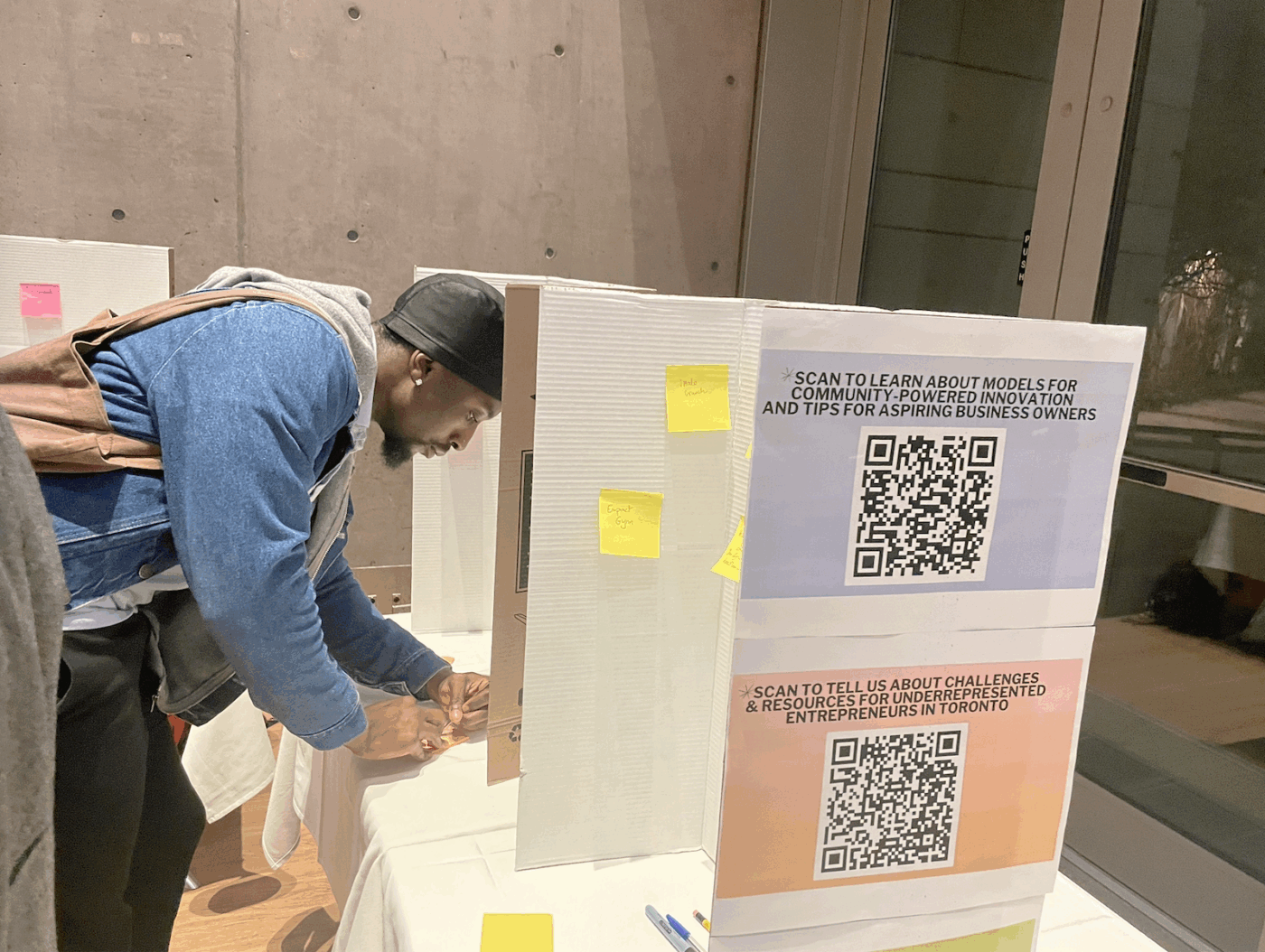
An event attendee writes down challenges he faced as an entrepreneur, as well as resources and strategies that he found useful.
📸: Amanda Seraphina/The Green Line.
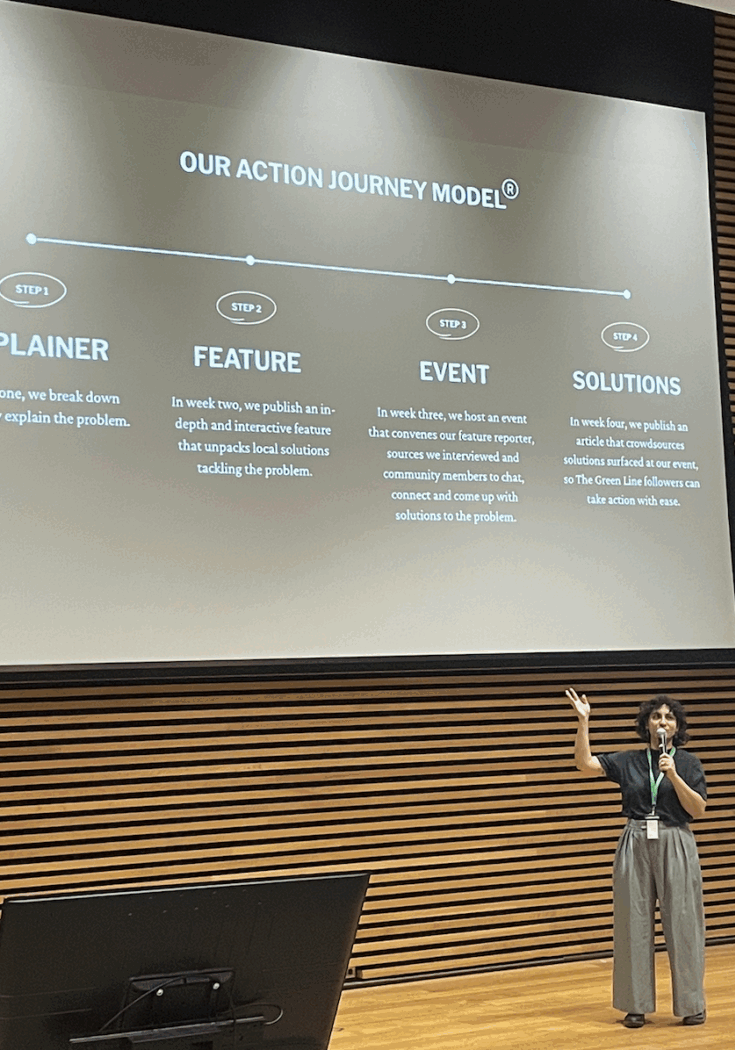
Managing editor Yara El Murr presents The Green Line's Action Journey process.
📸: Amanda Seraphina/ The Green Line.
SOLUTIONS
ACTIONS
Do something about the problems that
impact you and your communities.
Advocate for a community hub in your neighbourhood
Experts and entrepreneurs we met say it takes a village to support local innovation. Social Planning Toronto has a toolkit to start building a community hub where residents can meet to explore creative solutions.
Apply to Ontario Centre for Innovation’s programs
OCI offers many opportunities, from pre-seed investment funds to grants helping small retail businesses adopt new digital tools. It also offers industry-specific support for innovators in life sciences and automotive manufacturing.
Check out our guide to setting up your business
We asked BEA’s Olu Villasa, as well as successful entrepreneurs in Toronto, for their best advice for folks looking to start their own business. We compiled funding opportunities they recommend, as well as their best tips in this easy-to-read guide.
Join our community
Continue the conversation with other Green Line community members.

Event attendees mingle and network during the Black Entrepreneurship Alliance's event at York University.
📸: Yara El Murr/ The Green Line.
Become a Green Liner to get exclusive access to our events and meet a community of people who want to rewrite Toronto's identity together.
